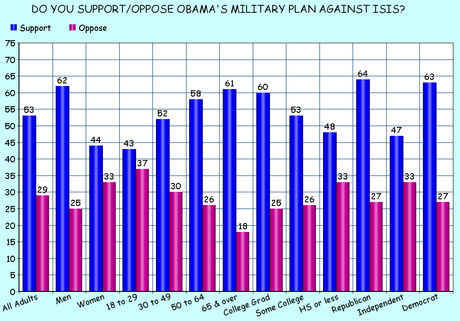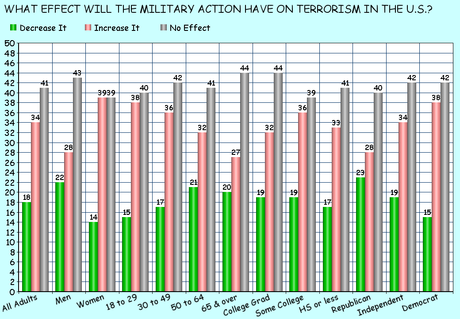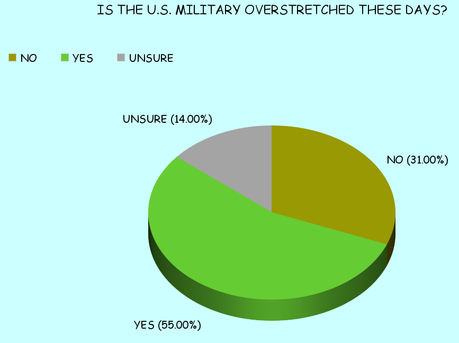

The top chart above (from a Pew Research Center survey done between September 11th and 14th of a random national sample of 1,003 adults, with a 3.6 point margin of error) shows that the American people clearly support President Obama's plan to go back to war in Iraq (and Syria). It is supported by a 53% majority of the general public -- and when the public is broken down demographically, we can see that every group shows more support than opposition (although the support is less than 50% in some groups like women, young people, those with a high school education or less, and Independents).
I admit that this support for a new war mystifies me. The reason given for the military action by members of both parties in Congress is because ISIS poses a threat to the United States. Since ISIS poses no military threat to this country, I have to believe they are talking about a terrorist threat. If so, then support for the new war makes even less sense. Note in the bottom chart above that a majority of the public (and of every demographic group) says the military action will either increase the threat of terrorism or have no effect on it at all. Why then do they support the new march to war?
It becomes even more mystifying when you note the chart below -- from a Rasmussen Poll done on September 17th and 18th of a random national sample of 1,000 likely voters, with a margin of error of 3 points. A majority (55%) of the public believes that the American military is already overstretched. Why would they then support a new conflict in the Middle East -- when we have learned from recent conflicts that it will assuredly be a prolonged conflict that will further stretch U.S. military resources?
Have Americans gotten so used to endless war that we now think it is the way things are supposed to be? Have we become so frightened by our politicians (who just want to be re-elected) that we will support a war even when we don't think it will do any good? Or do we still think it is our duty to be the world's policeman?


